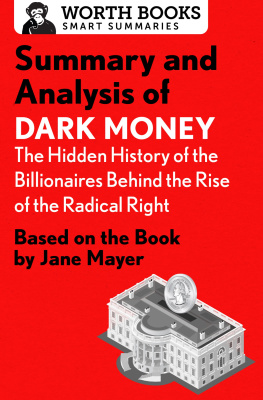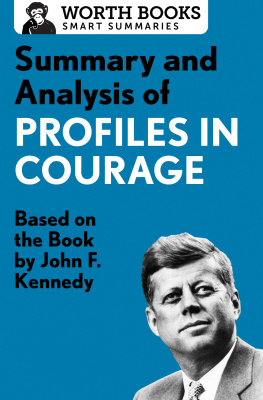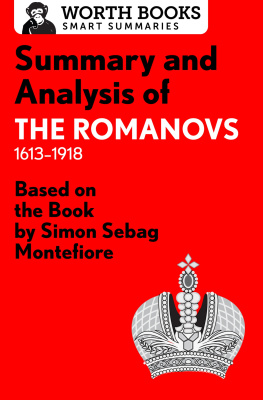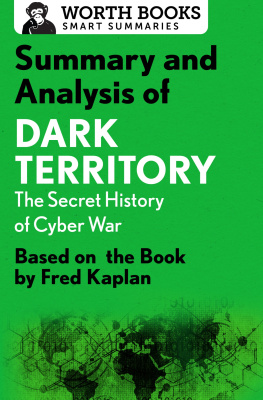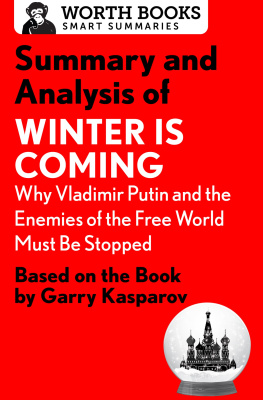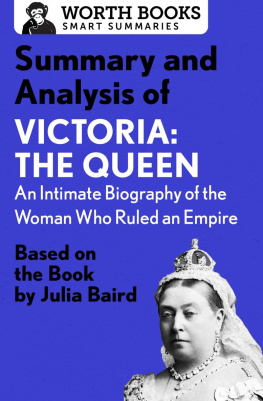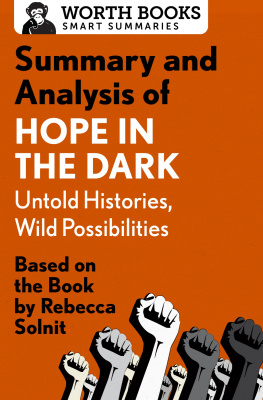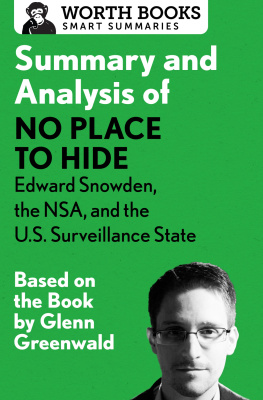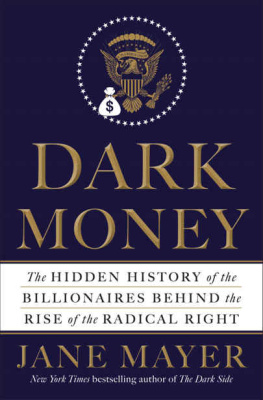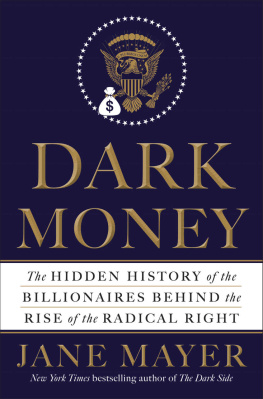Sign up for our newsletter to discover more ebooks worth reading.
EARLY BIRD BOOKS
FRESH EBOOK DEALS, DELIVERED DAILY
LOVE TO READ ?
LOVE GREAT SALES ?
GET FANTASTIC DEALS ON BESTSELLING EBOOKS DELIVERED TO YOUR INBOX EVERY DAY!
Summary and Analysis of
Dark Money
The Hidden History of the Billionaires Behind the Rise of the Radical Right
Based on the Book by Jane Mayer
The summary and analysis in this ebook are meant to complement your reading experience and bring you closer to a great work of nonfiction. This ebook is not intended as a substitute for the work that it summarizes and analyzes, and it is not authorized, approved, licensed, or endorsed by the works author or publisher. Worth Books makes no representations or warranties with respect to the accuracy or completeness of the contents of this ebook.
Contents
Context
Jane Mayers Dark Money was published in January 2016, during the run-up to the most bitter and divisive election campaign in recent US history, one that would lead to the election of Donald Trump, the countrys first billionaire president.
The book provides invaluable insights into the major role that a tiny network of ultra-wealthy donors led by Charles and David Koch has come to play in US politics over the past 40 years. Through tax-free contributions to charitable foundations, they have driven a radical conservative agenda in academia, the media, the court system, and government, exerting a hidden but powerful influence in all those spheres.
Dark Money had its genesis in Mayers article in the August 30, 2010 issue of the New Yorker : Covert Operations: The billionaire brothers who are waging a war against Obama. Although other journalists have approached the subject beforenotably Chrystia Freeland in the book Plutocrats: The Rise of the New Global Super-Rich and the Fall of Everyone Else none has given such a detailed account of the origins of the current tidal wave of right-wing political spending, the convoluted paths it travels, or the often insidious ways it affects national and local politics.
Overview
Dark Money tells the fascinating story of how an elite circle of fabulously wealthy individuals have come to play a decisive role in the American political system, gaining effective control of the Republican Party and influencing election outcomes across the country.
The book focuses on the heirs of a few families with notable surnames, including Richard Mellon Scaife, of the Mellon Bank and Gulf Oil dynasty; John M. Olin, of the chemical giant, the Olin Corporation; and, most notably, Charles and David Koch, heads of Koch Industries and two of the wealthiest individuals in the world.
Mayer details how Fred Koch, the family patriarch, amassed a fortune in the oil industry during the 1920s and 30s and later became a founding member of the John Birch Society. His sons Charles and David followed in their fathers ideological footsteps; in the 1970s, they joined the Libertarian movement, which promoted unfettered free enterprise and the reduction of government to one essential role: protecting private property.
Given the Libertarians scant electoral success, the brothers turned to advocacy philanthropy, using their financial clout to fund academic departments and think tanks in an effort to create the intellectual framework for their radical conservative agenda. All this largesse was channeled through charitable foundations, making it anonymous, or dark, and tax deductible.
By 2009, the Koch brothers donor network had become vast, and the sums it handled were enormous. Through donations to political action groups, the network supportedor arguably, createdthe Tea Party movement. A 2010 Supreme Court decision removed limits on corporate donations to political action groups, opening the floodgates to a raging river of dark money in that years midterm elections. The result was a Republican majority in Congress that would obstruct President Barack Obamas agenda for the rest of his tenure.
For anyone seeking to understand the outcome of the 2016 campaign, Dark Money provides essential perspective. It tells the story of the real power driving the conservative groundswell in American politics: A wealthy minority whose political and/or ideological agenda is inextricably linked to its own self-interest.
Summary
New Preface to the 2017 Edition
The 2016 presidential election marked the apotheosis of the Koch brothers political power. Although they did not support Donald Trumps candidacy, the brothers donated a record $750 million to Republican candidates for the Senate, House of Representatives, and state legislatures across the country. This was accomplished through a nationwide network of political operatives whose paid staff was larger than that of the Republican National Committee.
Despite his previous disavowal of Trump, David Koch was on hand at Trump Tower on November 8, 2016, to celebrate the Republican candidates victory. The Koch brothers have connections to the Trump administration at the highest level: Vice President Mike Pence was Charles Kochs first choice for Republican presidential candidate in 2012 and CIA Director Mike Pompeo formerly represented their Kansas district in Congress, where he was the single largest recipient of Koch campaign funds.
Need to Know: During the campaign, Donald Trump mocked the candidates who attended the Koch brothers secret fundraising sessions as puppets and boasted that he would drain the swamp of lobbyists and other moneyed interests in Washington, DC. Nevertheless, his transition team included many political insiders with deep ties to the Koch network eager to advance the brothers free-market, antiregulatory agenda.
Introduction: The Investors
On the day of President Barack Obamas first inaugurationJanuary 20, 2009Charles and David Koch, the heads of Koch Industries, hosted a seminar for wealthy political donors at a luxurious resort in Indian Wells, California. They brought together a group of fellow billionaires and multimillionaires from the energy, finance, and manufacturing industries to plot the agenda to oppose the incoming administrations economic policiespolicies they felt would be catastrophic.
Once regarded as leaders of a fringe element in conservative American politics, the Kochs had spent hundreds of millions of dollars over the previous three decades to advance their causes by financing think tanks, academic programs, advocacy groups, and congressional lobbyists. Charles and David Koch, owners of the Georgia-Pacific lumber and paper company, oil refineries in Alaska, Texas, and Minnesota, and thousands of miles of pipelines, were each worth an estimated $14 billion in 2009. Forbes had ranked them as the sixth- and seventh-wealthiest men in the world. In 1980, when David Koch ran for vice president of the United States on the Libertarian ticket, influential conservative thinker William F. Buckley Jr. rejected his platform as Anarcho-Totalitarianism.

